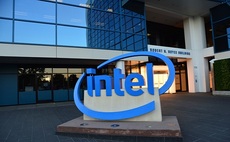
Partner Insight: Enter the new era of digital transformation with Intel Xeon
The pandemic has shifted IT leaders' roles and responsibilities. Digital acceleration has long been the backbone of business continuity and ease-of-use for consumers and employees alike. IT leaders' greater influence has driven transformation, but it has also created a greater workload burden.
Computing's latest research on this subject, conducted in partnership with Intel, reveals where organisations are in their digital transformation plans and how cost concerns limit continued innovation.
Participating organisations say the chief objectives of their digital transformation are remote working, company reputation, launching new products and business models, and security. The pandemic saw digital change, which could have taken years to evolve, take place in weeks out of necessity. However, sustaining and building on this progress creates problems with security, governance and strategy.
Unforeseen spiralling costs appear to be pervasive. Companies that attempt to digitise or automate an existing sub-optimal process undoubtedly encounter problems, ultimately meaning ROI is difficult to achieve. Only nine per cent rank their digital transformation ROI as extremely satisfactory, with 41 per cent rating theirs somewhat satisfactory.
The cost of competency
For many, this is down to a lack of in-house skills or organisational buy-in. Without the appropriate bandwidth, digital objectives are not delivering, and organisations cannot pivot technology to suit the nature of work. Those that report digital transformation success cite buy-in across all levels of organisation and teamwork as key factors.
Cultural problems in both pre- and post-migration impede implementation, integral strategies and innovation. In other words, they prevent cloud objectives from being fully realised. Hurdles of this kind mean cost objectives cannot be met; half of respondents say their biggest challenge during and after implementation is cost.
Reducing costs through efficiency and automation are the greatest motivators for digital transformation, and yet just under half of respondents report difficulties in identifying whether transformation initiatives are in fact providing cost savings. When asked to rate the effectiveness of their transformation programme at achieving efficiency and automation, where 1 is not at all successful and 10 is extremely successful, the average score was 6.5 - a decidedly lukewarm response. Out of 12 objectives, cost reduction ranked ninth for achievement across a range of industries.
Evidently, there is a gap between expectations and reality. 70 per cent of IT leaders tell us their digital transformation plans have been prioritised over the last 18 months, but clearly the benefits are not being reaped.
Cost creep
Decisions made in the planning phases of digital transformation influence expenditure down the line. Complex pricing tariffs and bundles, as well as the persuasion to over-spec cloud infrastructure from the onset to avoid latency issues, mean many organisations are seeing costs rise.
The need to digitise is increasingly important in the era of digital transformation and protecting company data is paramount. Choosing technology that you can trust and that is scalable will provide the security and performance needed. IT leaders must seek out tailored, performance-optimised solutions to support their specific cloud migration journey. In this way, administrators can choose optimal environments for their organisation's applications and workloads.
The definition of digital maturity will continue to evolve - it is a false peak. Just as organisations reach it, a new summit emerges ahead. To grow in the digital economy and achieve transformational success, you need buy-in across all levels of organisation, stakeholder and vendor support, common goals, controlled scope, and clearly defined objectives. Strategy is key in driving innovation and driving down costs.
To learn more about Computing's latest research into digital transformation and how to win the race that never ends, read the full report.
This post is sponsored by Intel




















